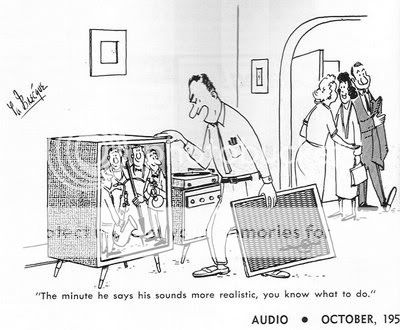So how would you go abouot screening the attendies
That’s pretty simple. You ask: do you think an X-type of cable (depending on what you are testing) can make an audible difference in sound, provided that all the cables are designed according to generally accepted good manufacturing processes? (you can elaborate a bit more on what exactly constitutes GMP for a specific cable)
The respondent can then say: yes, no or I don’t know / I’m not sure.
and what characteristics would be considdered to be acceptable and whcih one not acceptable to the test.
Let’s say you test 2 cables. You could let people first knowingly listen to cable A. After that, you repeat it with cable B. You could even repeat this for a couple of times. Afterwards, when the blind listening test starts, you can ask people whether they are listening to cable A and B during a number of swaps. If you want a
double blind test, you could even get someone involved who doesn't talk to the participants and is not involved in the processing of the data. With respect to your question ‘what characteristics one should listen to’: I’d say that’s not relevant. It’s about hearing a difference and any characteristic will do. (Please note that this is a very simple description of something that can be made very complex, depending on what it is you are testing and how reliable you want your results to be).
Fortunately, many other people have already done something similar and their descriptions of their set ups can be used to model the test.
With respect to what Dave & Drummerman have said, I guess it also depends on whether other people should be able to learn about the results on this forum. If yes, then following some procedures is absolutely necessary to prevent any possible confusion upfront and discontent afterwards. The last thing you want is that participants start having a fight on the forum when the results are presented.
By the way, I don’t think that following a couple of procedures, such as asking the participant whether he’s a believer or a skeptic, would make things very complex. If you undertake such a thing, there are a couple of minimal provisions you can take to prevent some obvious problems, and in my opinion that adds to the value of the test without making it difficult. The results may still not be of scientific value, but could be interesting enough to write a little summary about on Whathifi (with pictures of course, gotta have pictures).
In any case, I would always let 1 person work out a basic set up (preferably someone with an academic background in a discipline where such tests and statistical analyses are common practice, e.g. someone who has studied psychology, sociology or medicine), who sends out a draft and allows for comments or suggestions. This person then finalizes the draft and hopefully everyone is still happy to join in.




